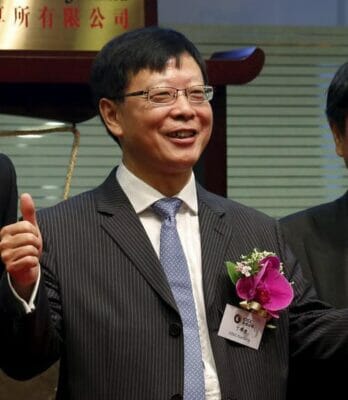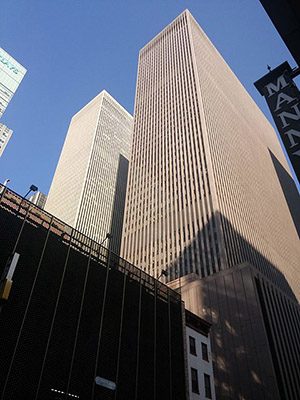
Former chairman Ding Xuedong made his last year at CIC count
Sovereign wealth fund China Investment Corporation (CIC) returned to profitability in 2016 after a dismal showing the previous year, as the mainland’s leading investor in overseas real estate ramps up its exposure to property and other alternative assets. The world’s third-largest sovereign wealth fund by assets reported a 6.22 percent return on its overseas investments last year, rebounding from a 2.96 percent loss in 2015, according to CIC’s annual report released this week.
CIC said its profits rose to $75.3 billion last year from $73.9 billion in 2015, while it earned $83 billion in investment income, up from $76.7 billion the previous year. The fund attributes its most successful year since 2013 to a global equities rally that has boosted returns for other sovereign wealth funds from Japan to Singapore, as well as portfolio adjustments that have seen CIC increase its share of alternative assets.
Real Estate, Infrastructure Deals Help CIC Recover

CIC purchased a stake in New York’s 1221 Avenue of the Americas, part of Rockeller Center, in 2016
In its report, CIC pointed out that for 2016, the fund had “created a multi-tiered structure of managers” for its real estate investment operations, aiming to improve its returns from the sector as it revamped its investment model.
The fund’s managers also stated that with regard to its real estate approach for 2016, “Believing in investing in the best, we invested in several high quality and resilient core assets in major real estate markets in the world that could generate stable long-term returns.”
CIC committed $5 billion to real estate projects worldwide last year, accounting for a 2.65 percent share of its overseas portfolio. Among its biggest deals, last December the firm spent $1.03 billion to take a 45 percent stake in a building in New York’s Rockefeller Center, buying the interest from CPPIB. That Manhattan mega-deal followed CIC’s first major foray into US real estate in May, when it purchased a 49 percent stake in the 1 New York Plaza office tower from Brookfield Property Partners for $700 million.
Last November the firm also teamed up with private investment manager AEW to buy two French malls for €188 million ($206 million). In the same month, CIC reportedly backed a $2.7 billion deal to acquire the International Finance Centre Seoul with Canada’s Brookfield Asset Management.
CIC also bought three office parks in the southeast of England from Australian logistics developer Goodman for £250 million ($355.4 million) at the start of 2016.
Losing Money Sparks New Approach
CIC’s interest in real estate, including US assets, comes after the fund had a tough year in 2015.
Along with some other sovereign wealth funds, the Chinese state vehicle was hurt by financial market volatility during 2015, reporting the fund’s first negative net annual return since 2011. In response, then chairman and CEO Ding Xuedong last July said CIC would adjust its investment strategies, focusing more attention on assets that generate stable returns, including real estate and infrastructure. Ding stepped down from his positions with the fund in February this year as part of a top level reshuffle at China’s biggest financial institutions.
As a result, alternative assets – including real estate, infrastructure, hedge funds, private equity, private credit and multi-asset investments – rose from 34.83 percent of CIC’s overall portfolio at the end of 2015 to 37.24 percent a year later.
Chinese Fund Tries to Raise Its Profile in the US
The US remains the biggest overseas market for CIC, accounting for over $90 billion or about 42 percent of the fund’s total overseas investment last year. But most of that investment is in public markets, and the $813.5 billion fund has repeatedly complained that US authorities are frustrating its ambitions to diversify into direct, private-market deals.
“We hope the U.S. government will provide us with a more liberal, equal and nondiscriminatory investment environment,” the fund’s managing director, Liu Fangyu, told The New York Times on Tuesday. The criticism echoes complaints voiced by CIC president Tu Guangshao, who told The Wall Street Journal in May that “US regulators have been hard on us.” Despite CIC’s $1.7 billion worth of Manhattan deals in 2016, Tu said he could not name one symbolic direct investment in the country.
CIC’s real estate acquisition streak has continued in force in 2017. At the beginning of June, the fund announced it was buying Blackstone’s European logistics platform Logicor for 12.25 billion euros ($13.82 billion), in one of the biggest real estate deals in history. Earlier this month, CIC joined a consortium including China Life and TIAA to purchase InterPark, America’s largest parking space operator in a deal estimated to top $1 billion.
Leave a Reply